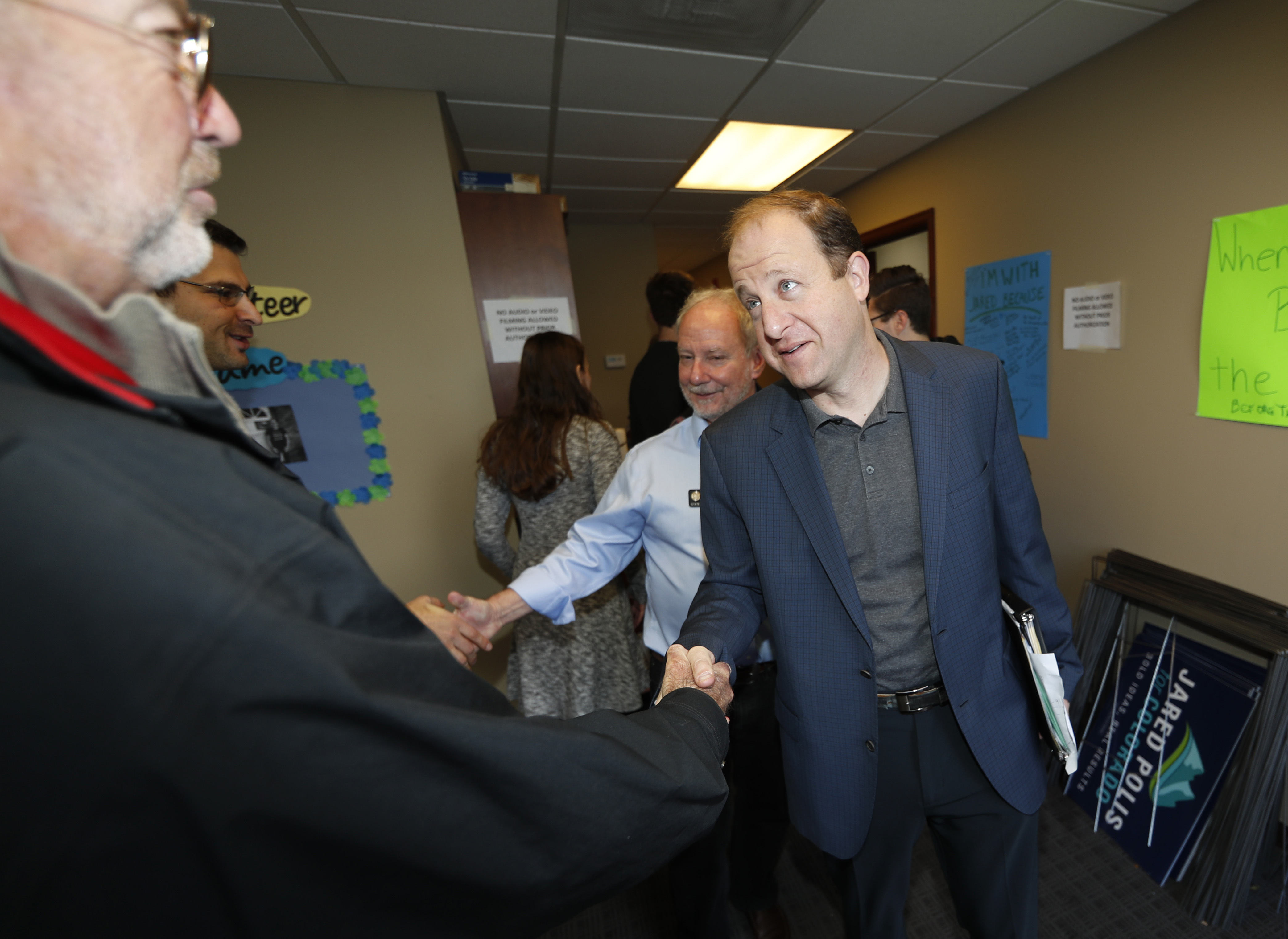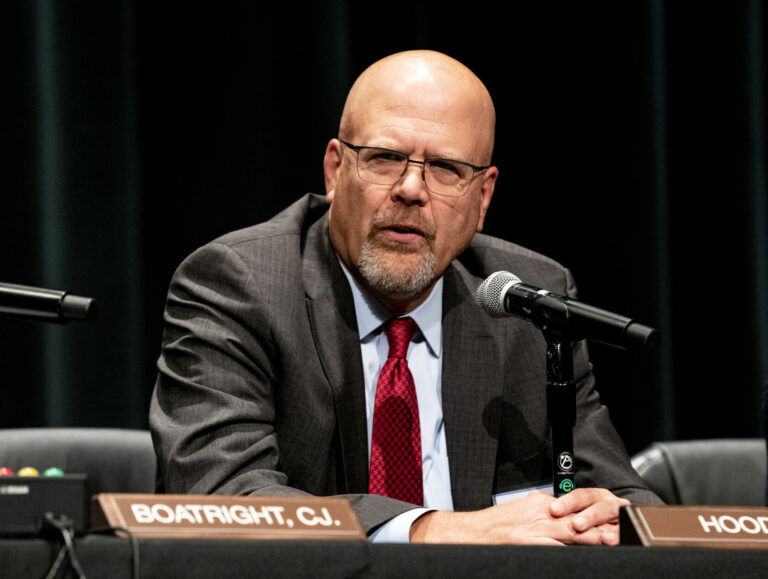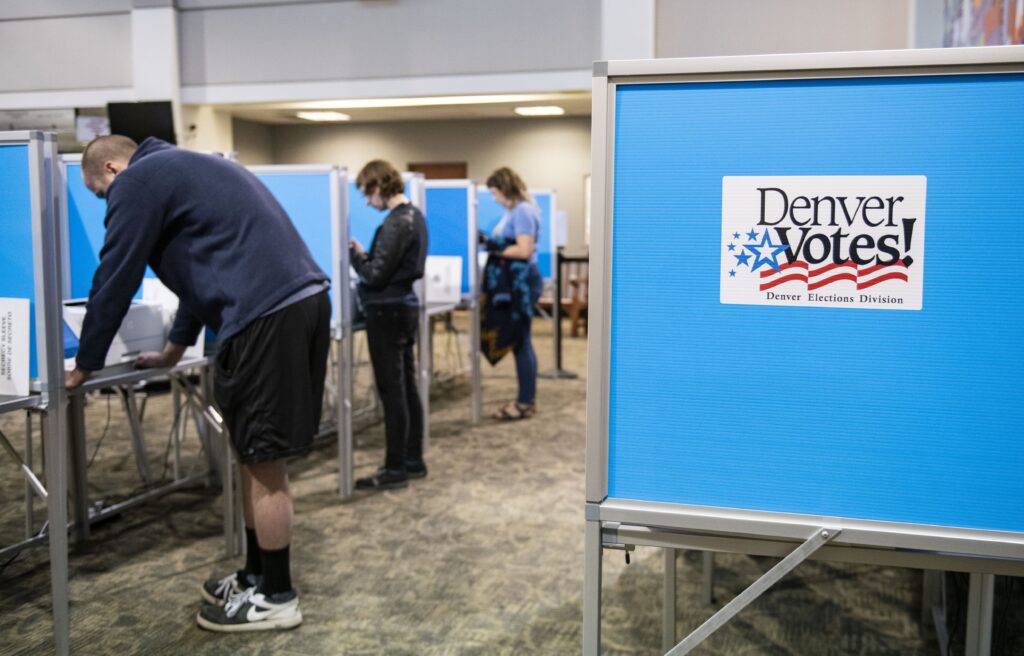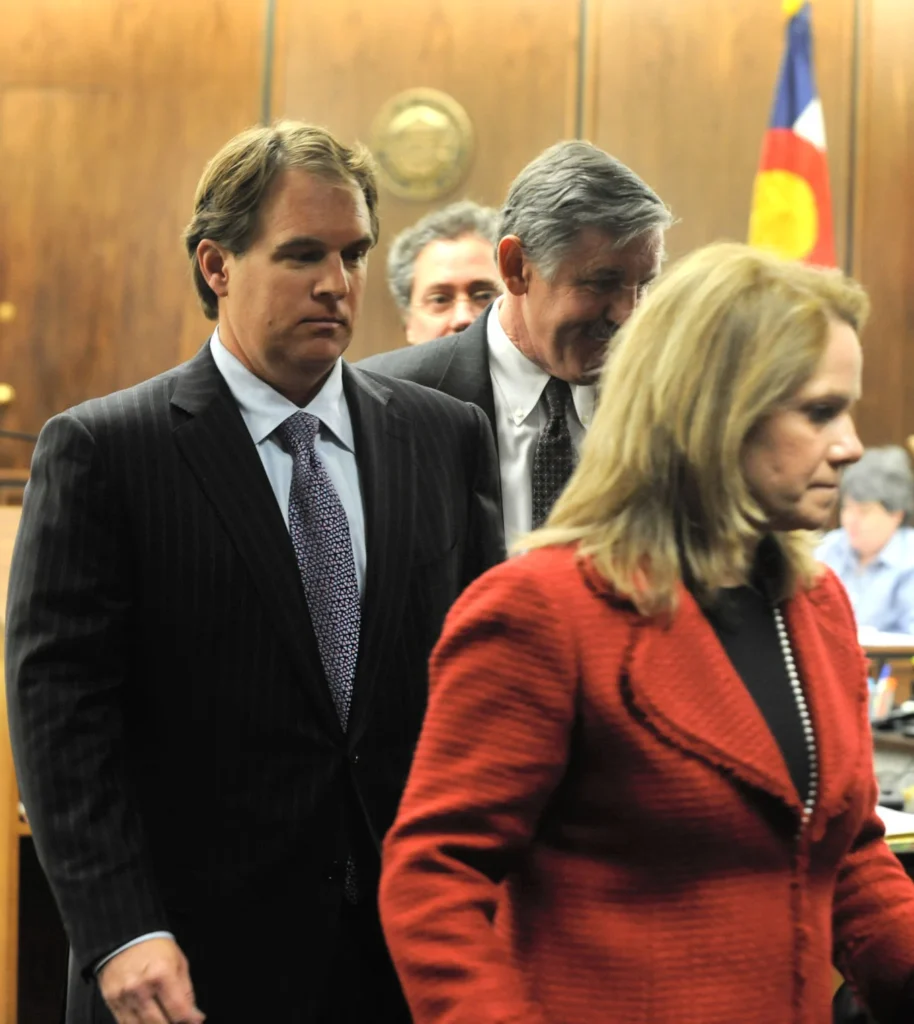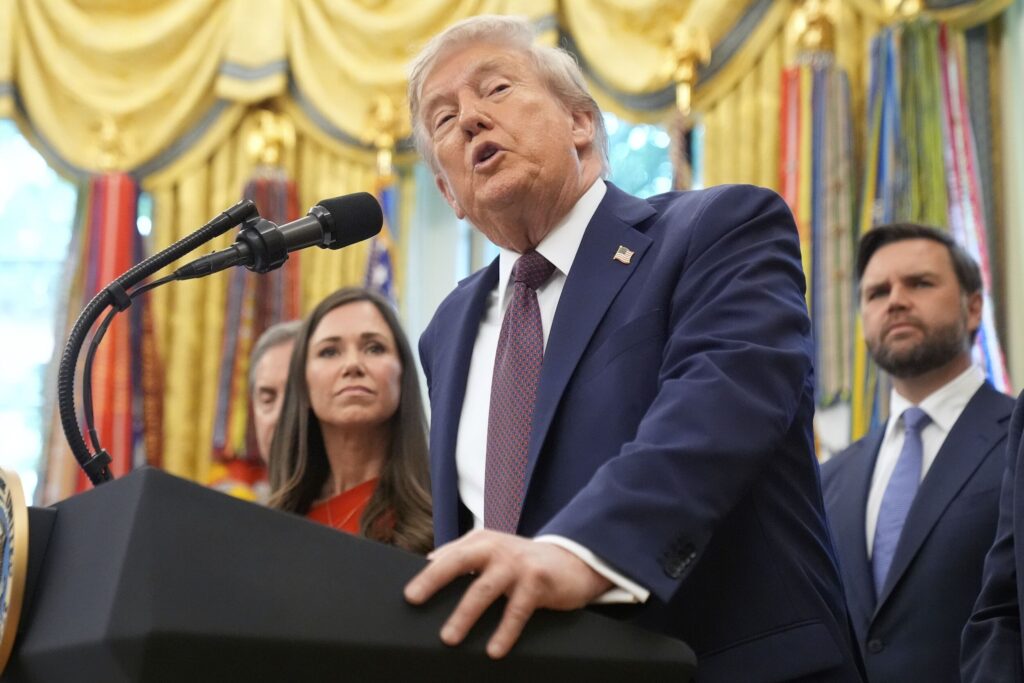TRAIL MIX | A feast of firsts for Colorado on Election Day
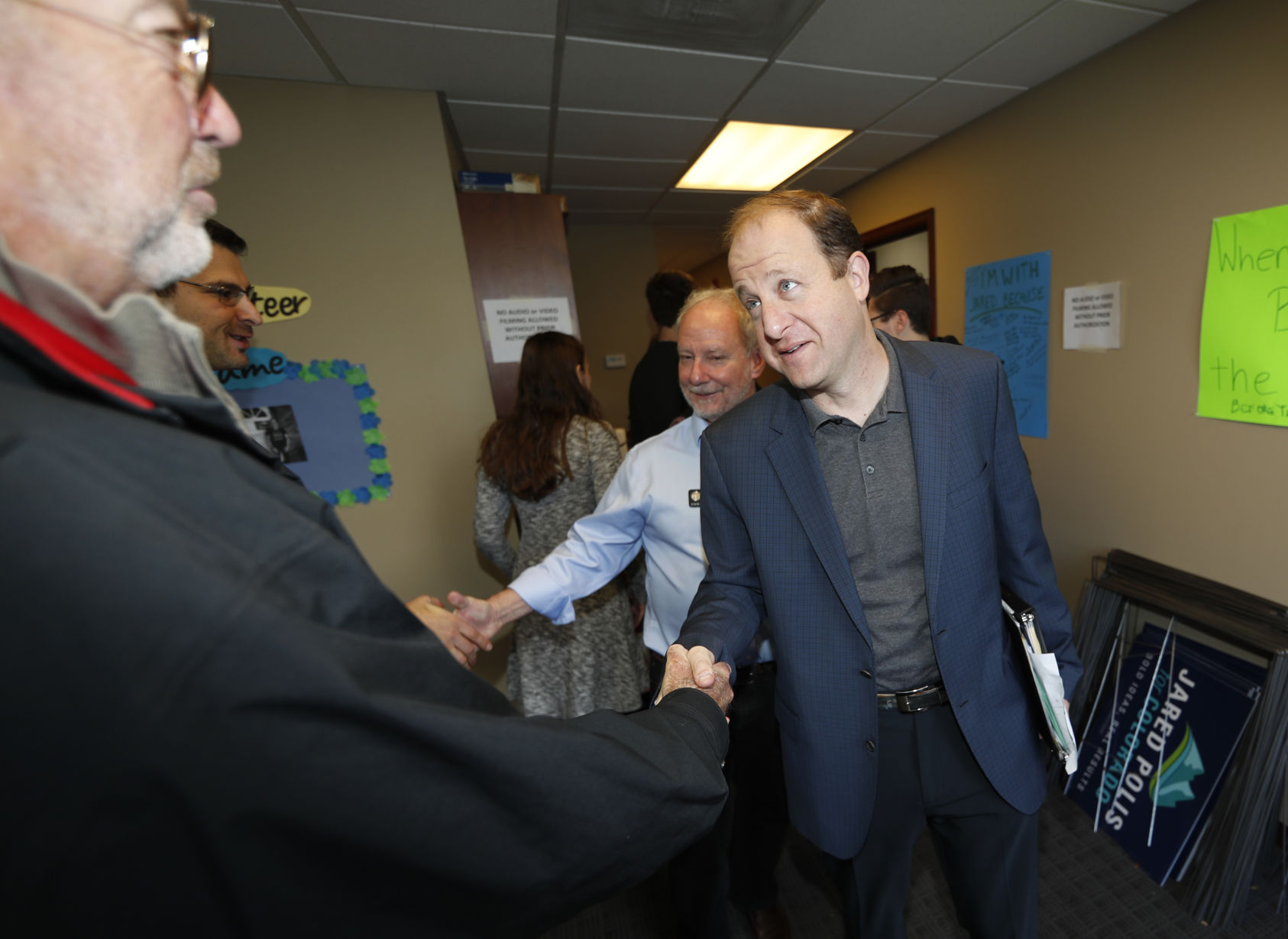
When Democrat Jared Polis won election as Colorado’s 43rd governor on Tuesday, he became the state’s first Jewish governor-elect and the first openly gay candidate to be elected governor anywhere in the country – among a plethora of historic firsts etched by state voters into the record books.
In addition, Polis is the first sitting member of the U.S. House of Representatives to be elected governor of Colorado. One of his predecessors, John F. Shafroth – the great-grandfather of Will Shafroth, who lost a congressional primary to Polis a decade ago – served in the House, winning the first of five elections in 1894.
(Shafroth handed his seat to his opponent after his fifth victory, claiming election fraud had thrown his legitimacy into doubt, earning the nickname “Honest John.”)
Those are only the latest in a string of firsts for Polis, a congressman from Boulder, who also was the first openly gay candidate to win a seat in Congress and the first gay parent to serve at the U.S. Capitol. (He was also the first congressional candidate to accept Bitcoin contributions for his campaign, a nod to his background as a tech entrepreneur.)
To be clear, Polis is not the first openly gay person to serve as a governor or as a congressman – but he is the first to be elected by voters who knew he was gay.
Other distinctions set on Election Day include:
? Joe Neguse, the son of Eritrean refugees and the Democrat picked by voters to fill the 2nd Congressional District seat held for the last five terms by Polis, is the first African-American member of Congress from Colorado and the first Eritrean-American elected from any state to Congress.
? Democrat Phil Weiser, the son and grandson of Holocaust survivors, will be the state’s first Jewish attorney general.
? Jena Griswold, the young attorney who unseated Republican Secretary of State Wayne Williams, will be the first Democratic woman to hold the office.
According to unofficial returns, Griswold has also received more votes than any Colorado woman in state history. The previous holder of this record, outgoing Republican Attorney General Cynthia Coffman, got 1,002,626 votes when she won election in 2014, a total surpassed by the 1,116,693 votes in Griswold’s column as of Thursday evening.
(Two years ago, Democratic presidential nominee Hillary Clinton eclipsed Griswold and Coffman’s totals, with 1,338,870 votes in Colorado. Meanwhile, Democratic U.S. Sen. Michael Bennet holds the record for the most votes received from Colorado voters by any candidate – 1,370,710 – when he won a second full term in 2016.)
But it was Polis becoming the first gay man elected governor that caught the most attention – in part, because of the historic irony that it was Colorado voters who broke that barrier, just a generation after making another mark in American history.
As Marcos Descalzi, a student leader in Colorado with Students for Education Reform, put it: “To go from a state once dubbed the ‘Hate State’ because of anti-gay laws to a state that just elected Jared Polis … means it’s officially a new era for [LGBTQ] Coloradans.”
Twenty-six years ago, Colorado voters approved Amendment 2, which banned protection based on sexual preference. The ballot measure was struck down a few years later by the U.S. Supreme Court, but not before the state drew scorn and boycotts, costing millions of dollars in lost revenue.
Former state Sen. Pat Steadman, a Denver Democrat and an attorney, was one of the activists who worked to overturn Amendment 2. Polis’ election was notable, he said, but emphasized that setting the milestone was perhaps the least interesting part about it.
“It’s a first, it’s historic, it’s important,” Steadman told Colorado Politics. “But I saw the day after the election how many Coloradans had woken up and discovered that Jared was gay, because it was a complete non-issue in the campaign.”
Steadman made clear he’s thrilled that Polis won.
“I’m really glad that maybe we’ve turned a corner on questioning the dignity and value of LGBTQ Americans,” he said. “We mark this as a first, and I hope we quit marking the second, third, fourth and fifth – because it’s not what makes the person interesting.”
“The most important thing,” Steadman added, “is that we’ve gone through the whole campaign without it being an issue, because it has nothing to do with being qualified to be governor. Voters are more interested in his position on education and transportation and climate change and renewable energy, which is as it should be. Those are what qualify him to earn your vote.”
Recent attention to Amendment 2, however, reminded Steadman that the dark mark on the state’s past is still there – ruled unconstitutional by the nation’s high court but still residing in Colorado’s chief governing document.
“We won’t close the book on that story until we get it out of the state constitution,” he said.
The General Assembly routinely sends constitutional clean-up questions to voters – to remove “dead letters,” as it’s known in legislative parlance – and Steadman thinks it’s time lawmakers move ahead with erasing Amendment 2.
The statutory revision committee considered sending the question to voters last year, but legislators passed, deeming it “too controversial.”
“I guess some people want to cling to their dead letters,” Steadman said. “But it’s time for another cleanup referendum.”
